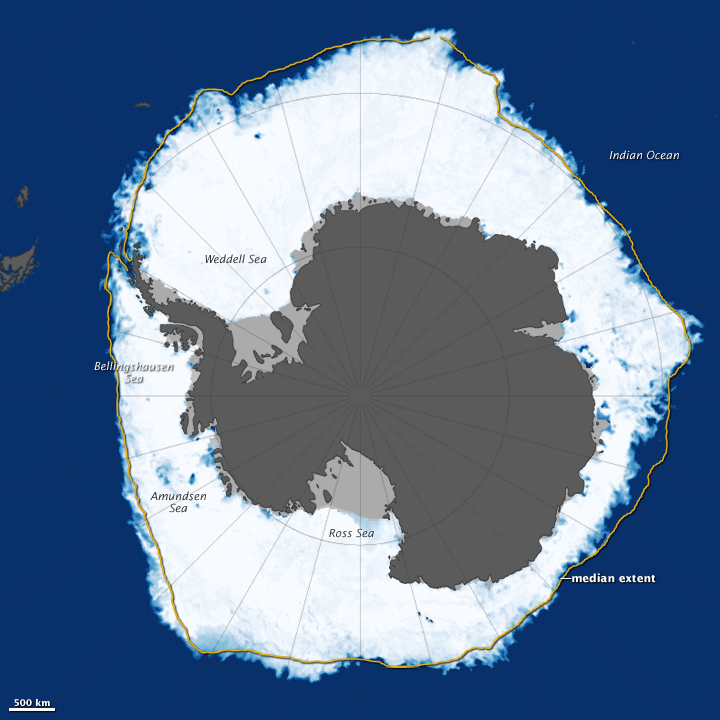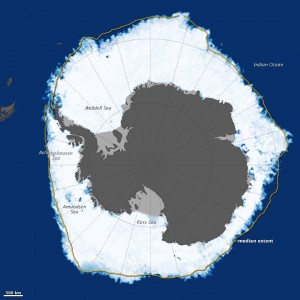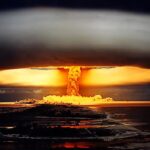November 29, 2013 – While the Arctic Ocean experienced a record decline the last few years in the amount of sea ice, the opposite is happening in Antarctica. NASA reports that the last two years sea ice around the continent reached a maximum in 2013 of 19.47 million square kilometers (7.51 million square miles), slightly higher than the previous year. The results come from the Global Change Observation Mission 1st-Water (GCOM-W1) Japanese satellite.
Such results immediately bring out the climate change deniers like those who speak for the Heartland Institute and who are funded by the fossil fuel industry and the Koch brothers. But although counter-intuitive to the climate warming argument that most scientists agree on with 95% certainty as reported in the latest IPCC report, the unique geography and positioning of Antarctica more than explains the results.
The enlarged sea ice is happening on the fringes of a continent that is in fact undergoing climate change. There are a number of theories to explain this paradox.
- One points to changes in the dynamics of the stratosphere layer in the atmosphere over Antarctica caused by ozone depletion.
- A second points to an increase in the polar storms and cyclonic winds observed since 1980 which is contributing to increases in the amount of precipitation falling on the continent and the ocean fringe. When the freshwater precipitation freezes at a higher temperature the ice surface expands.
- A third points to warmer temperatures and higher pressure patterns over the Antarctic peninsula which juts out from the continent towards South America. The warmer temperatures is causing nearby ocean surface warming but along with Antarctic vortex this warm water tends to get sloshed around creating thermal inversions with cold saltier water rising over warm freshwater. When the two mix the water freezes.
- A fourth explanation looks at rising levels of overall precipitation in the Antarctic and the snow-to-ice conversion rate which considering the less dense nature of the freshwater will generally lead to ice expansion.



















